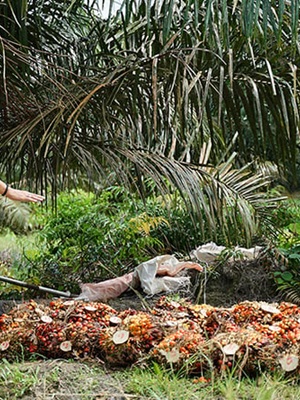Overview
The Philippines is known for being one of the most disaster-prone countries globally to the effects of climate change. Recent estimates indicate that climate change could lead to a loss of over 7% of the country's GDP by 2030. Since 1990, disasters have already resulted in damages amounting to $23 billion. In response, the Philippines passed Republic Act 9729, known as the Climate Change Act of 2009 which states that the government must protect people's right to a healthy environment while meeting human needs and preserving the natural world for future generations.
After this law was passed, the National Framework Strategy on Climate Change (NFSCC) was adopted in April 2010. Following the principles in the NFSCC, the National Climate Change Action Plan (NCCAP) was created to guide the country’s efforts on climate adaptation and mitigation from 2011 to 2028. The NCCAP outlines seven key areas for action: food security, water availability, ecological stability, human safety, climate-friendly industries and services, sustainable energy, and knowledge development. It also includes plans for monitoring progress each year and a full evaluation every three years. In April 2021, the Philippines submitted its Nationally Determined Contribution (NDC) under the UN climate agreement that aims to reduce greenhouse gas emissions by 75% by 2030. The NDC expresses the country’s commitment to tackling climate change and addresses the need for sustainable and climate-resilient development.
Another response by the Philippine government is the development of Sustainable Finance Framework to support its sustainability goals and outline its plans for issuing Green, Social, or Sustainability Bonds, loans, and other debt instruments (collectively referred to as Sustainable Financing Instruments). Through this framework, the country aims to contribute to the growth of the Sustainable Financing market in the Philippines. One of the key developments is the issuance of green bonds which aim to fund projects that have positive environmental impacts instead of mining or coal. As of March 31, 2023, the total issuance of ASEAN-labeled Green, Social, and Sustainability Bonds reached US$40.14 billion, with Philippine companies contributing US$10.03 billion, or 25% of the total. This move not only attracted local investors but also garnered international attention which also signaled the country's commitment to sustainable development.
Source: The Philippine Sustainable Finance Roadmap Page 30 Figure 1
Private sector engagement
In the Philippines, businesses have transformed to more effectively tackle current challenges, including economic development, environmental responsibility, climate resilience, and public health. Many have proactively offered support, particularly in addressing concerns like public health, job security, social inequalities, and the struggles of vulnerable populations. Initiatives driven by environmental, social, and governance (ESG) principles are seen as paving the way for a more sustainable future, benefiting not only the businesses but also the broader economy, society, and the environment in the long run. In addition, the Philippine Securities and Exchange Commission (SEC) has mandated all publicly-listed companies to submit an annual sustainability report in 2019. This requirement is designed to promote a deeper understanding of sustainability reporting as a strategic tool for creating long-term value, engaging stakeholders, and managing risks.
Challenges to Sustainable Finance
Despite the progress made, several challenges hinder the full realization of sustainable finance in the Philippines. For instance, while the Philippines has established science-based institutions capable of providing local climate projections and assessments, many stakeholders—including government agencies, NGOs, civil society, the private sector, and communities—still face challenges in utilizing climate data for managing climate risks and incorporating it into long-term business planning and decision-making processes. In addition, some private sector entities also do not incorporate climate data into their business strategies or some lack the ability to access climate financing technologies that results in investors and financial institutions struggling to assess the long-term viability of projects due to insufficient data.
Additionally, regulatory frameworks can be fragmented, making it difficult for investors to navigate the landscape of sustainable finance in the Philippines. While the BSP has initiated significant reforms, there is still a need for a more cohesive policy approach that encourages sustainable investment across all sectors.
Education and Awareness
Education and awareness are important in driving sustainable finance. For instance, financial literacy programs that focus on sustainability can empower individuals and businesses to make informed decisions and by understanding the benefits of sustainable investments. In addition, stakeholders are more likely to support initiatives that contribute to environmental and social well-being. Educational institutions also have a role to play by integrating sustainability into their curricula. For instance, in Ateneo de Manila University, consistently provides educational opportunities, including sustainability training that aims to empower the university community by equipping them with the essential knowledge and skills to advance their sustainability skills and to promote a more inclusive and equitable environment. This also includes incorporating a sustainability perspective into management practices through their postgraduate program like Master in Sustainability Management and minor in Sustainability. These programs are designed to meet the increasing demand for consultants in sustainability strategies, the implementation of sustainability initiatives, and sustainability reporting which in turn, can produce experts in sustainable finance.
The Future of Sustainable Finance in the Philippines
The future of sustainable finance in the Philippines looks promising as more stakeholders come and are willing to move in this direction. In fact, the Bangko Sentral ng Pilipinas (BSP) plans to introduce a green taxonomy aimed at enhancing transparency and attracting foreign investment for climate mitigation and adaptation projects. A draft of this taxonomy was circulated in October 2023 and is expected to provide clear definitions and criteria for what qualifies as "green" investments, thereby reducing ambiguity for investors and encouraging the allocation of capital towards sustainable initiatives. By establishing these guidelines, the BSP aims to create a framework that not only invites investor confidence but also aligns with global sustainability standards.
The strategic actions taken by the BSP with the growing commitment from various sectors, indicate a progressing state of sustainable finance in the Philippines. And as the landscape evolves, it is important for stakeholders to continue working together to ensure that sustainable finance not only thrives but also effectively contributes to the nation’s long-term economic stability and environmental sustainability.
Posted 29/10/2024

















